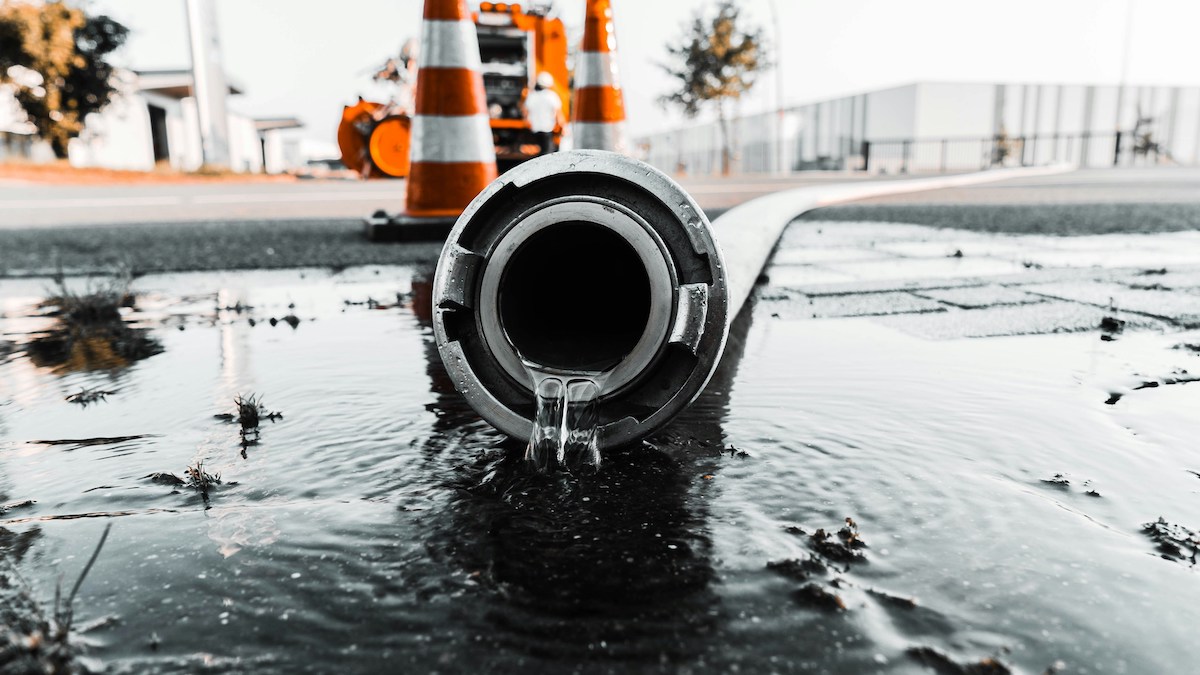Water leaks are common and can cause a lot of damage. In this post, we’re explaining how to make a successful water leak insurance claim, so that you can get your payout as quickly as possible.
We’re breaking down the essential steps to give you the best chance of getting your claim approved.
From documenting the damage to communicating effectively with your insurer, here’s how to make a successful water leak insurance claim.
Let’s dive in.
Or, if you’d rather speak directly to one of our qualified insurance brokers, you can do that too.
Click below to learn more:
- How to make a successful water leak insurance claim?
- What type of water damage is covered by homeowners insurance?
- Does insurance cover basement flooding from rain?
- What is the average insurance payout for water damage?
How to make a successful water leak insurance claim?
What you need to know when filing a water damage insurance claim:
- Prompt action: Act quickly to mitigate further damage and protect your property. Document the extent of the water damage with photographs or videos.
- Contact your insurance company: Notify your insurance company as soon as possible to initiate the claims process. Provide detailed information about the cause and extent of the water damage.
- Gather documentation: Keep records of all communication with your insurance company, including claim numbers and adjuster information. Provide any documentation requested by your insurance company, such as plumber’s reports or receipts for repairs.
- Cooperate with the adjuster: Cooperate with the insurance adjuster during the claims process. Allow access to your property for inspection and assessment of the damage.
- Follow-up: Stay informed about the progress of your claim and follow up with your insurance company if necessary.
By following these steps throughout the claims process, you can maximize your chances of your insurance payout arriving promptly.
What type of water damage is covered by homeowners insurance?
Understanding what types of water damage are covered by homeowners insurance is a key part of protecting your property and finances.
Here’s what you need to know:
- Covered water damage events: Homeowners insurance typically covers water damage caused by sudden and accidental events, such as burst pipes, plumbing leaks, or appliance malfunctions. Damage from weather-related events, such as storms or flooding, may or may not be covered depending on your policy and any additional flood insurance you may have.
- Exclusions: Homeowners insurance policies may exclude coverage for certain types of water damage, such as gradual damage from ongoing leaks or seepage. Damage caused by neglect or lack of maintenance may also be excluded from coverage.
- Policy limits and deductibles: Review your homeowners insurance policy to understand the limits and deductibles that apply to water damage coverage. Consider purchasing additional coverage or raising your policy limits if you live in an area prone to water damage events.
- Claims process: In the event of water damage to your home, follow the steps outlined by your insurance company to file a claim promptly. Provide documentation and cooperate with the claims adjuster to facilitate the claims process.
Does insurance cover basement flooding from rain?
So, does insurance cover damages to the home from rainwater?
Basement flooding is often only included as a specialty coverage on your home insurance policy – meaning you have to specifically add it to your coverage.
While homeowners insurance provides coverage for certain types of water damage, it’s essential to review your policy to understand the coverage you have.
What is the average insurance payout for water damage?
The average insurance payout for water damage changes on a case by case basis and can be anywhere from a few hundred to tens of thousands of dollars.
The severity of the damage, policyholder’s coverage limits, and deductible amounts all affect payout amounts.
While minor water damage claims result in smaller payouts, more extensive damage typically leads to larger settlements.
- Factors influencing payouts: The extent and cost of water damage are primary factors influencing insurance payouts. Policyholders with comprehensive coverage and higher policy limits typically receive larger payouts to cover repair and restoration expenses.
- Average ranges: On average, insurance payouts for water damage claims typically range from a few hundred to several thousand dollars. In cases of severe water damage requiring extensive repairs or property restoration, payouts can exceed tens of thousands of dollars.
- Documentation and proof: Documenting the extent of water damage with photographs, videos, and detailed descriptions can support your insurance claim and help ensure a fair payout. Provide accurate estimates and invoices from contractors or restoration professionals to substantiate your claim and facilitate the payout process.
- Claims process: The claims process and timeline for receiving insurance payouts for water damage can vary depending on the insurer, the complexity of the claim, and other factors. Promptly report water damage incidents to your insurance company and follow their guidelines for filing and documenting your claim to expedite the payout process.
Wrap-up
Knowing how to submit a water leak insurance claim properly will help make the process go much more smoothly.
Remember, proactive documentation and clear communication are key to a smooth claims process.
Still have questions? Don’t hesitate to reach out to the home insurance brokers at KBD.
Give us a call.
PS: Do you follow KBD on social media? We’re up to some cool stuff. YouTube, Instagram, TikTok


